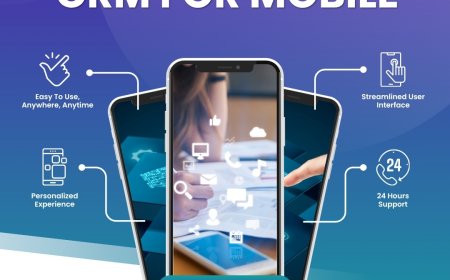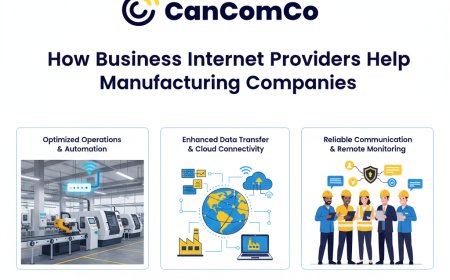Elevating Patient Centricity via Pharma Consulting Expertise
Explore how patient centricity transforms pharma through consulting services. Strategies for better outcomes, engagement, and innovation in drug development.

In the evolving pharmaceutical landscape, patient centricity and pharma consulting have become cornerstones for sustainable success. Patient centricity shifts the focus from products to people, ensuring that patient needs drive every decision. Pharma consulting, meanwhile, provides the strategic expertise to implement this shift effectively. Together, they foster innovation, improve outcomes, and build trust in an industry often criticized for being profit-driven.
Defining Patient Centricity in Modern Pharma
Patient centricity is more than a buzzword; it's a philosophy that places patients at the heart of drug development and delivery. This approach involves understanding patient journeys, from diagnosis to treatment adherence. It emphasizes empathy, incorporating patient feedback to design therapies that are accessible, effective, and user-friendly.
In practice, patient centricity manifests in various ways. For example, simplifying dosing regimens or developing apps for symptom tracking. It also extends to diverse representation in trials, ensuring therapies work across demographics like age, gender, and ethnicity.
The benefits are clear: higher adherence rates, better health outcomes, and stronger brand loyalty. Studies show that patient-centric companies see up to 20% higher patient satisfaction scores.
The Vital Role of Pharma Consulting
Pharma consulting encompasses advisory services across the value chain, from R&D to commercialization. Consultants bring objectivity, industry benchmarks, and best practices to help companies navigate challenges like rising costs and regulatory hurdles.
Key areas include strategy formulation, operational efficiency, and digital transformation. For instance, consultants might audit supply chains to reduce delays or advise on mergers and acquisitions.
In a post-pandemic world, pharma consulting has adapted to new realities, such as remote monitoring and data privacy under GDPR. This ensures companies remain agile and compliant.
Integrating Patient Centricity with Pharma Consulting
The intersection of patient centricity and pharma consulting is where real transformation occurs. Consultants help embed patient-centric principles into core operations. This might involve co-creating trial protocols with patient advisory boards, ensuring endpoints reflect what matters most to patients—like quality of life over mere survival rates.
Pharma consulting facilitates this by providing frameworks for implementation. Tools like patient journey mapping identify pain points, while analytics measure impact. Consultants also train teams on patient engagement techniques, such as active listening and cultural sensitivity.
A notable example is a large pharma firm that, through consulting, revamped its oncology portfolio. By prioritizing patient centricity, they incorporated wearable tech for real-time feedback, leading to faster iterations and a 30% improvement in trial retention.
Overcoming Barriers to Adoption
Adopting patient centricity isn't straightforward. Barriers include siloed departments, where R&D operates independently from marketing. Pharma consulting addresses this by promoting cross-functional teams and change management programs.
Another challenge is data integration. Patient data from various sources—EHRs, wearables—must be unified securely. Consultants recommend platforms compliant with HIPAA, ensuring ethical use.
Cultural shifts are crucial too. Employees need to embrace empathy; consulting firms offer workshops to foster this mindset.
Emerging Trends and Innovations
Future trends in patient centricity and pharma consulting are exciting. Personalized medicine, powered by genomics, exemplifies patient focus. Consultants guide on integrating AI for tailored treatments.
Decentralized trials, where patients participate from home, enhance accessibility. Pharma consulting helps design these, incorporating virtual tools and logistics.
Sustainability ties in as well; patients increasingly prefer eco-conscious companies. Consultants advise on green manufacturing, aligning with patient values.
Digital health ecosystems are rising, with apps and telehealth. Consulting ensures seamless integration, boosting patient engagement.
Evaluating Impact and Metrics
Measuring patient centricity's impact requires robust metrics. Net Promoter Scores (NPS) gauge satisfaction, while adherence rates track real-world effectiveness.
Pharma consulting introduces KPIs like patient-reported outcomes (PROs) and return on engagement (ROE). Advanced analytics correlate these with business metrics, proving value.
Regular audits ensure sustained progress, with consultants providing benchmarks against industry peers.
Strategies for Effective Engagement
To engage pharma consulting for patient centricity, start with needs assessment. Identify gaps, like low patient involvement in early R&D.
Select consultants with proven track records; look for case studies in similar therapeutic areas.
Foster partnerships, not one-off projects. Ongoing collaboration yields deeper insights.
Involve patients early; consulting can facilitate focus groups or digital forums.
In summary, patient centricity, amplified by pharma consulting, is reshaping pharmaceuticals for the better. By prioritizing patients, companies not only comply with evolving expectations but also drive innovation and loyalty. Embracing this duo positions firms as leaders in a compassionate, effective industry.

































